Since dogs are man’s best friend, they are excellent companions for people who are retired. With more free time on their hands, retirees could benefit from the quiet company of a dog whose sole purpose is to bring them pleasure. But not every breed is suited to living life with a retiree, particularly if the senior lives in a retirement home where larger or more rambunctious dogs would not be permitted. Still, with so many wonderful breeds to choose from, there are many different dogs who would make ideal pets for those in retirement.
Factors to Consider
Just as you would need to consider all of the necessary facts before deciding on the right dog breed for a family with children, so too will you need to heavily weigh out which dog is the perfect fit for the retirement lifestyle. Here is a list of some things to keep in mind as you search for the right dog breed for you:
Activity requirements
Many seniors and retirees enjoy excellent health and are extremely active. However, this does not mean that they are up to the task of a high energy dog! When considering the right dog breed for the retirement lifestyle, it is always a good idea to be brutally honest with yourself as to how much time and energy you have to devote to walking and playing with your newly acquired dog. If you are unable to commit to more than half an hour a day, you might want to steer clear of breeds like the Jack Russell Terrier or the Border Collie who top the spectrum when it comes to high exercise requirements. Bear in mind that a dog who does not receive regular daily exercise can develop nuisance behaviors such as destroying property, digging, and excessive barking; habits that could get you evicted or into feuds with your neighbors. For best results, select a pooch that meets your own specific needs. There are definitely lots of breeds to choose from, so you are sure to find your ideal match!
Size
Size matters! While in the prime of life a power breed such as a Rottweiler, Bullmastiff, or American Staffordshire Terrier would have been a breeze to handle, retirees typically are looking for a dog with a little less muscle. Why is that? Muscle strength does tend to deterirorate with age, making it far more difficult to manage larger, more exuberant breeds. This also puts you at greater risk for injury as a 100 lb Rhodesian Ridgeback that pulls to greet the neighbor’s Chihuahua could sweep you right off your feet to a painful injury or even broken bones.
But more than this, most retirement homes do not permit larger breed dogs in apartment units. Larger breeds get a bad reputation for causing more damage and wear and tear to rental properties and other tenants in your building may also be frightened by your dog’s seemingly intimidating appearance. Though these generalizations may be unfair, you will need to abide by the policies of your apartment building or home, so you’ll need to be sure to find out what they are!
If you own your own home, the sky is the limit as to what breed you could choose, but it is still best to consider adopting a small to medium-sized breed that is easier for you to manage. Your body will thank you for it!
Age
No one likes to think too much about the ticking hands of time, but when it comes to choosing a dog, it is a necessity. There are two ages you need to consider: yours and the dog’s. Since the average dog’s lifespan extends between 10-15 years and sometimes longer, you need to take stock of how old you currently are and what age you will be when your dog enters his senior years. The things that you can do with ease at age 70 might be nearly impossible at age 85. With this in mind, many retirees consider adopting a rescue or senior dog. Adopting an older dog often means you get a pooch that has already “settled” into life. They come pre-trained and ready to curl up on your sofa and snuggle in. But the best part of adopting an older dog is you can age gracefully together. You won’t get to experience the puppy years, but that also means that you escape the housebreaking, chewing, and extremely bad manners phases. Older dogs have much to offer. They often have lower energy requirements, meaning you could consider a breed that would normally require excessive exercise but who now prefers a less active lifestyle. Your age should be a very serious factor in your decision as to whether to purchase a puppy, adult dog, or even a senior.
Temperament
Temperament is very important in a dog. If you live a life where you receive frequent visitors, obtaining a dog that is friendly with people and other animals is vital. This will automatically rule out certain breeds that prefer to remain aloof or whose natural tendency is to guard their “people.” Take into special consideration breeds that are known to be good with children if you have grandchildren who visit often.
Maintenance
All dogs require some maintenance to remain healthy and strong. Among the things you will need to consider is “How much grooming will my new dog need?” If you just aren’t up to brushing out your dog every night and making regular trips to see a groomer several times a year, a Labradoodle is most definitely not the dog for you!
If your vision for the “golden years” does not include vacuuming several times a day to keep your home hair-free, you won’t want to share your house with a Nordic breed such as an Alaskan Malamute who tends to “blow coat” several times a year, leaving your house looking like a blizzard hit.
What are the best breeds for retirees?
With so many wonderful breeds to choose from, it is very difficult to narrow down a list to just a few dogs that would relish retirement living. Here are a few of our top-rated picks to help you with your search:
French Bulldog
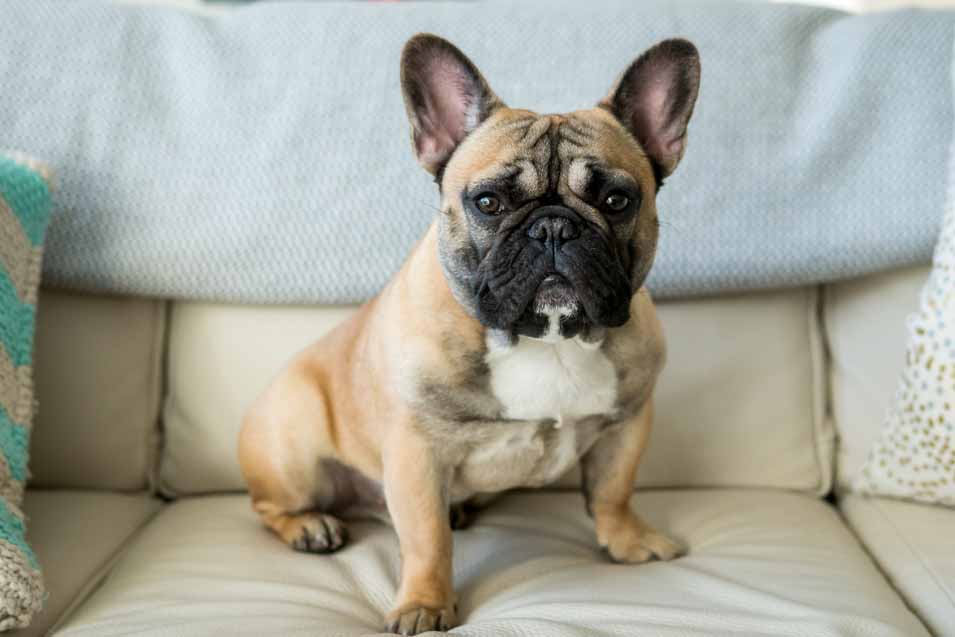
The French Bulldog is a funny little fellow that is sure to charm every person he meets! His comical ways and penchant for snoring make him the most endearing companion…if you can ignore the…ahem…sounds and smells that emanate from the opposite end of his body. The French Bulldog does shed but has low grooming requirements and requires only a moderate amount of activity, making him the perfect candidate for the retirement life.
Bichon Frise
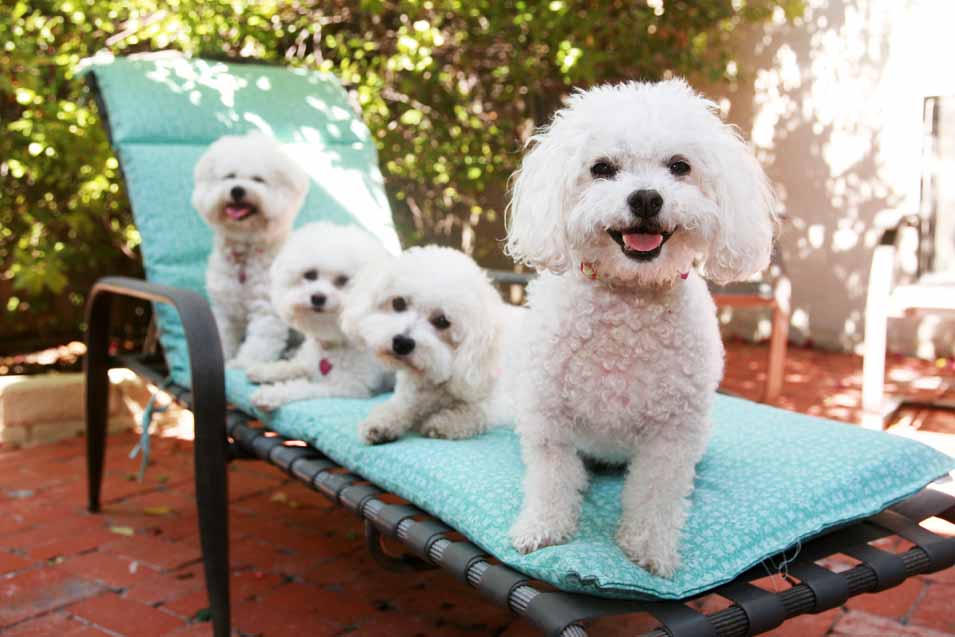
The delightful Bichon Frise has a sweet, happy disposition. A dog of moderate exercise needs, the Bichon Frise is simply content to be wherever you are. Not a low maintenance breed when it comes to grooming, you will need to commit to regular brushing and grooming or to simply keep your dog’s coat clipped in order to prevent it from becoming matted.
Pug
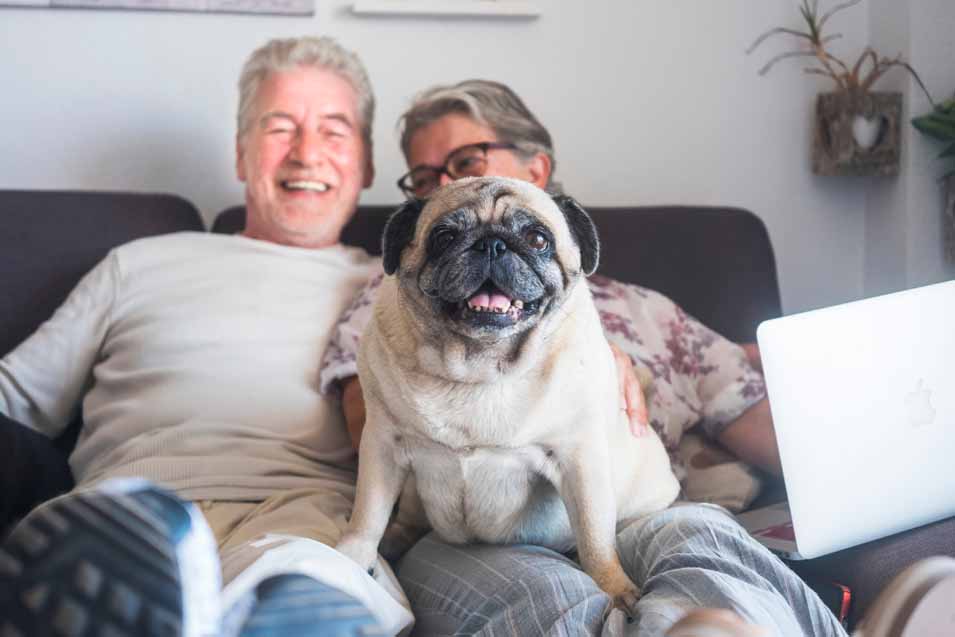
The Pug is an affectionate little clown. A playful companion with personality to spare, the Pug excels at retirement living as he has low activity requirements. Like the French Bulldog, Pugs do shed; however, they require little grooming.
Cocker Spaniel
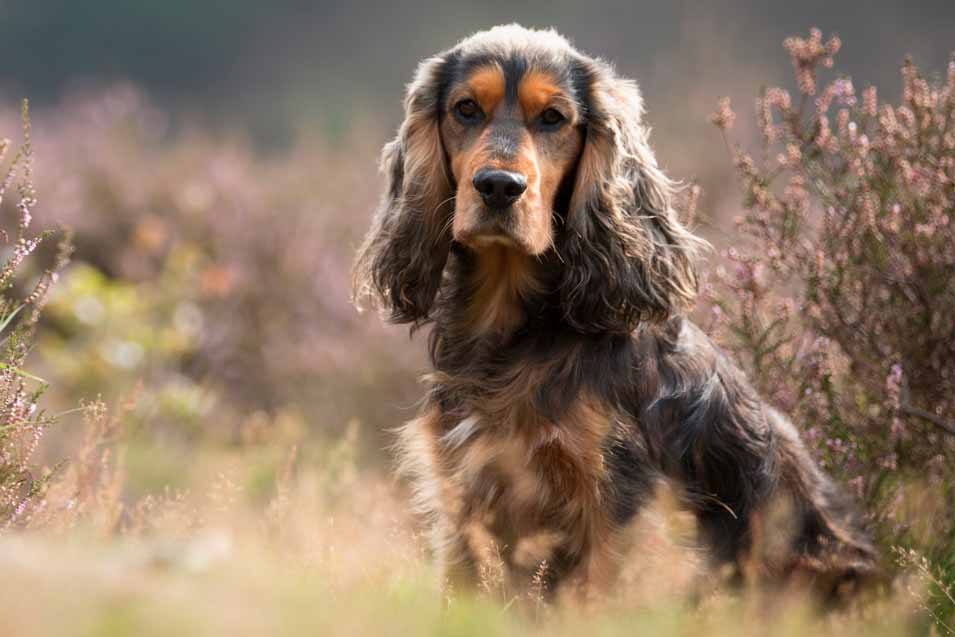
A moderately sized breed, the Cocker Spaniel is known for its intense loyalty to its family. The hallmark of the breed is its amiable, even personality. A Cocker is most content in the company of his family. You will not want for affection with a Cocker in your home! Cockers do require more than average grooming and also should be walked at least once daily.
Beagle
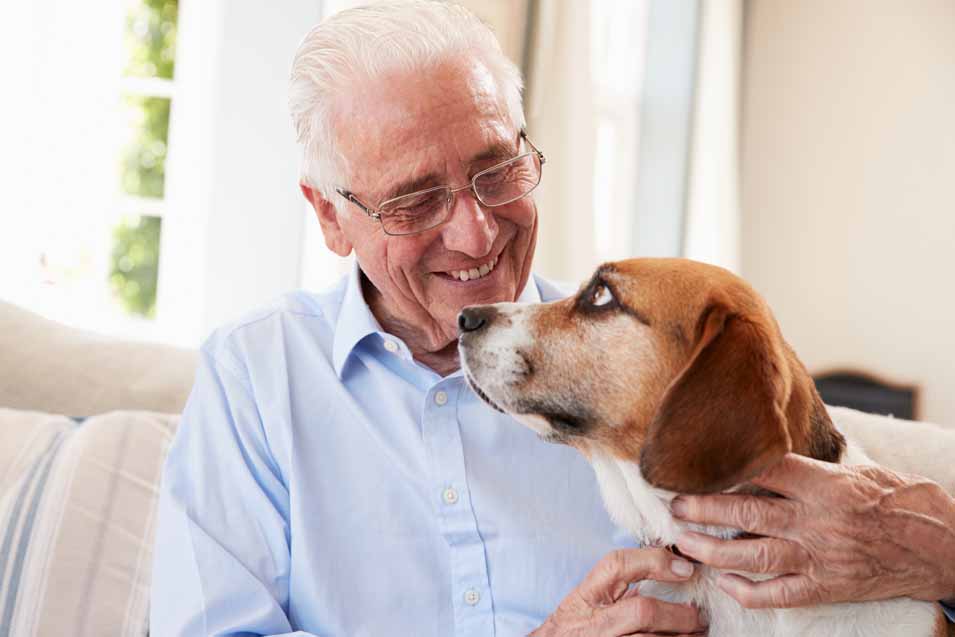
When it comes to cute factor, it is very hard to beat the Beagle! Beagles are joy-filled little dogs who bond very deeply with their people. The Beagle does shed but requires no real grooming, a bonus indeed. A breed that is satisfied with moderate daily activity, your Beagle will be overjoyed to join you on a walk or on the couch. Beagles are a baying breed and can be noisy.
Pomeranian
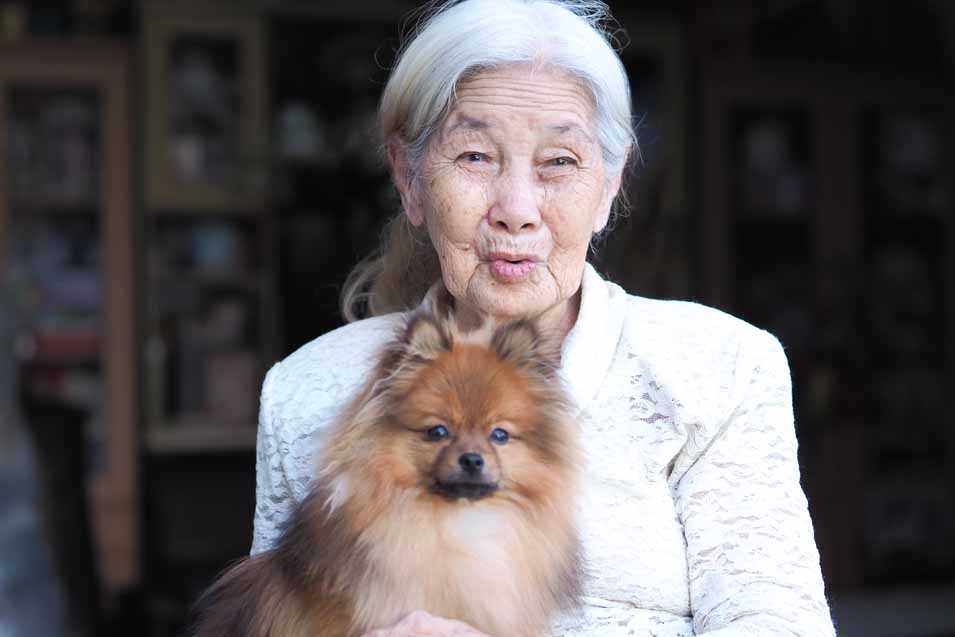
Who can resist the charm of the pint-sized Pomeranian? With adorable fluffy coats and their sweet little faces, the Pomeranian is the ideal lap dog for a senior. Pomeranians are not a highly active breed, but you will need to brush them regularly to keep their coats looking tidy. The Pomeranian is a dog that will make you the center of his world. A lover of both adults and children, the Pomeranian is a social creature, making him the perfect dog for a retiree in an apartment setting.
Yorkshire Terrier
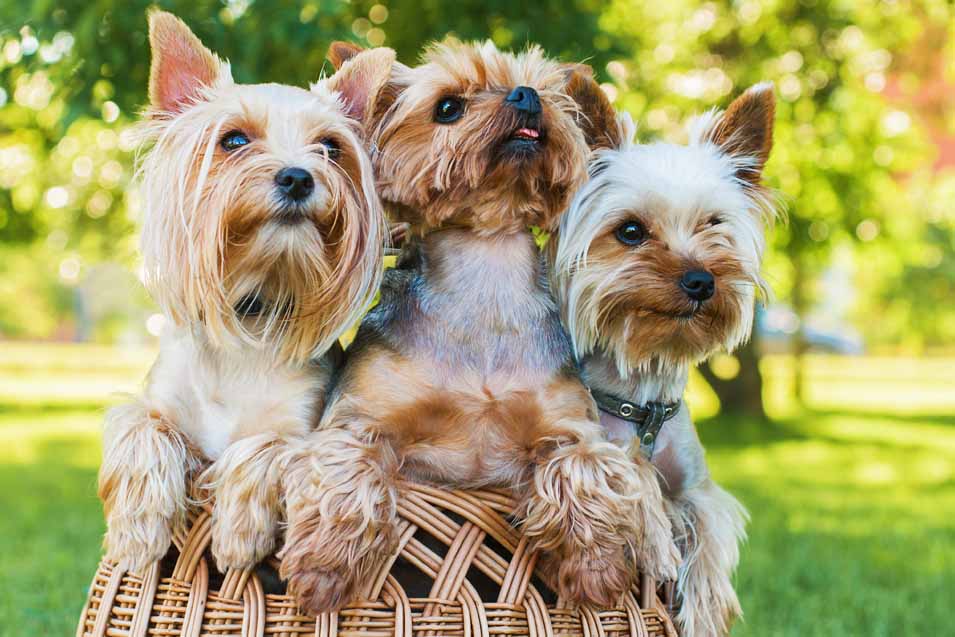
Yorkshire Terriers, commonly referred to as “Yorkies,” are one of America’s favorite breeds. Small in size but big on personality, the Yorkie is a dog that enjoys living the life of a pampered pooch. Yorkies are typically friendly dogs; however, they will require frequent trips to the groomer to maintain a healthy coat. Yorkies have only moderate activity requirements.
Heinz 57 / Mixed Breed
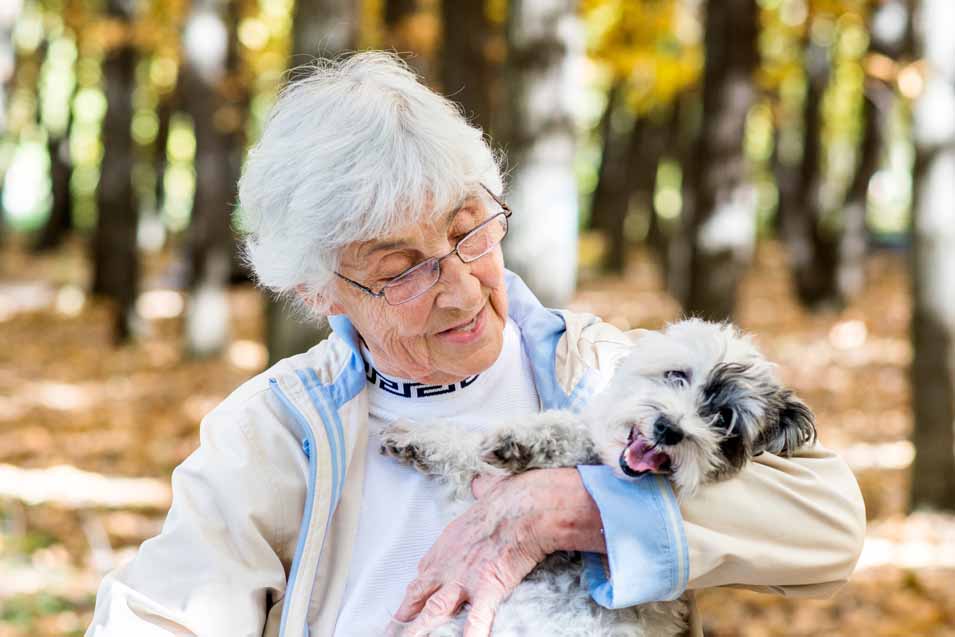
A Heinz 57, or mixed breed dog, is often the best way to go! Pop by your local shelter and ask the staff if they have any dogs that might be suited to living the high life with a retiree. The perfect dog might be waiting for you at your nearest shelter or rescue!
Yes, dogs make excellent companions for people in retirement. Why not add one to your family today?

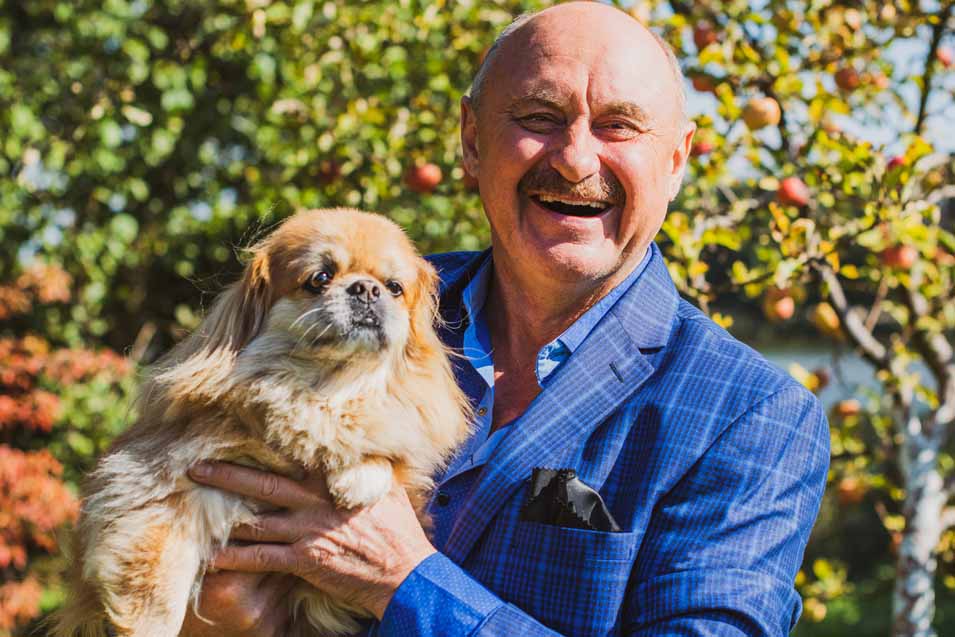

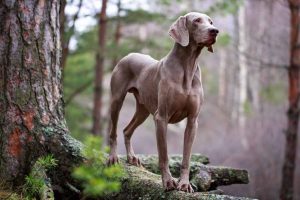
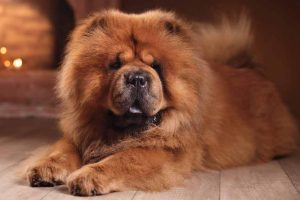
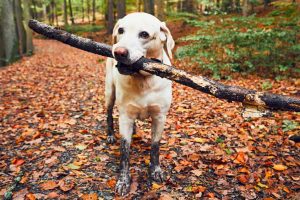

2 Responses
I am looking for dog 1 year and up and not to big.
I’d suggest getting Bichon Frise based on my own parents, they are in their 70’s and really enjoy the breed.